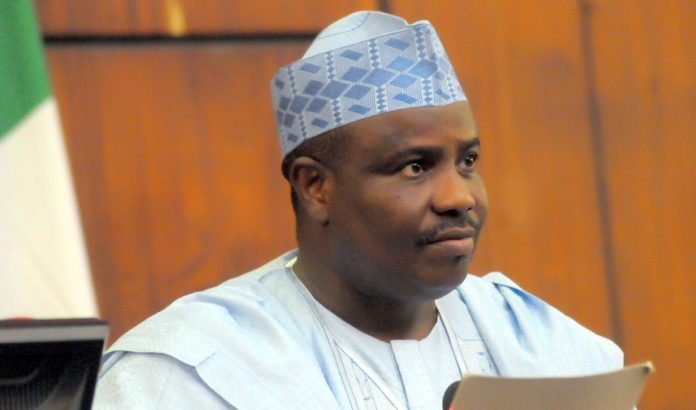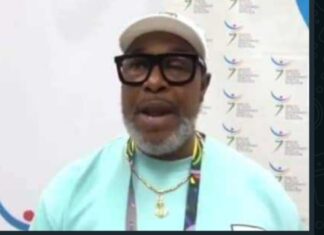By Edward Dibiana
The ever busy Rivers State capital city, Port Harcourt, has got busier and brimming with colours, vehicular and human traffic, as the city hosts the Peoples Democratic Party ( PDP), national convention this weekend.
The PDP will between Saturday October 6 and Sunday October 7, 2018 pick a presidential candidate for the 2019 general election, which many have tagged “the most important election”, since the return of democracy in 1999, as it will most likely be a referendum for true democracy and the expression of the fundamental rights of Nigerians to choose a path they wish to travel -a path of unity or divisiveness; a path of inclusiveness that would always uphold the overall interest of the people or that of cronyism, clannishness and selective appeasement.
More than ever before, Nigerians, irrespective of socio-economic standing, have become more politically aware, and are therefore ready not only to interrogate the kind of leadership the political class is providing, but essentially, playing active roles in designing a Nigeria of their dreams, through their votes.
The PDP, having mismanaged the goodwill it enjoyed for 16 years and consequently suffering a humiliating defeat in the 2015 presidential election that brought the current All Progressives Congress (APC) government to power, knows that it can’t afford to make further mistakes that could keep it out of power for another four years. So, that makes the Port Harcourt convention very critical and raises the stakes.
Many PDP faithful and those sympathetic to the party that describes itself as the biggest in black Africa, are thus, excited that the initial controversy over the choice of the Oil City as the venue for the all-important exercise, had been amicably resolved by the party leadership and stakeholders.
The importance of the coming 2019 presidential election, is apparently reflected in the calibre and number of the aspirants featuring in the primary. The party had earlier cleared 13 aspirants, including the Senate President, Bukola Saraki, his predecessor, David Mark, former Vice President Atiku Abubakar and the Sokoto State governor, Aminu Waziri Tambuwal among other high profile individuals. On the surface, the intimidating profile of the aspirants would make task of making a choice a bit difficult. But for those of who have followed these public officers closely, the choice is simple.
While Governor Tambuwal might not be the tallest, in physique, amongst these respected aspirants, he towers in stature and refreshing candour, on account of his impressive democratic credentials, impeccable records and achievements in public offices, unblemished image, strength of character, humility, exposure and knowledge. His thorough understanding of Nigeria’s obvious complexities, challenges and diversity as well as his broad world view, and general preparedness for leadership of a unique nation that needs urgent rescue from stagnancy brought upon her by successive failure of government, equally stand him out for the task.
Aside these enticing personal attributes, it is equally important to note that Tambuwal’s experiences as active player in the three arms of government, Legislature, Executive and Judiciary, distinguish him from the rest. He was in the House of Representatives for 12 years, four of which he spent, successfully piloting the affairs of the chamber as Speaker. In the judiciary, he is a Life Member of Body of Benchers, a position he earned on account of hard work and professionalism as a lawyer. As governor of Sokoto state, his impressive footprints in the executive arm, are well documented.
These unique qualities and attributes are not lost to either his contemporaries or the generation of leaders before him. For instance, former president Ibrahim Badamasi Babangida, some days ago in Minna, capital of Niger State spoke glowingly of Tambuwal, describing him as “very bright and grounded leader”, adding that he was “proud that my generation of leaders would be handing over the mantle of leadership to a successor generation that is bright and digital as His Excellency, Governor Tambuwal.”
In similar vein, Tambuwal’s governor-colleague, Ben Ayade of Cross River state, extolled his humility and strength of character, stressing: “Tambuwal like my humble self is a digital governor. Indeed, what you will find exciting about him is his humility. He is urbane, hospitable, well-educated with impressive finesse. This shows good upbringing and character. In spite of his impressive achievements in life, Tambuwal remains very respectful, very friendly. In fact, his second name is humility. And I envy him for that great leadership virtue.”
Tambuwal’s zest to provide purposeful 21st century leadership that would make Nigeria proud in the comity of nations, reflects in his conversations. He has assured Nigerians that if given the opportunity to serve as president, “From my experience and exposure and broad world view, and having visited and interacted with people in all the 360 federal constituencies, as Speaker, I have full understanding of the complexity of Nigeria’s unique diversity. And I know that our strength is in our diversity.
“But we need a leader that has the ability, understanding and willingness to unify this great nation and bring her to the path of peace and progress because Nigeria has never been this polarized along ethnic and religious lines. Nigeria belongs to all and everyone has the right to live and prosper in any part of the country without fear. We must say no to clannishness.
“In me, Nigeria will have a leader that will make her proud in the comity of nations, a leader that has the credential of togetherness, visionary leadership, bridge-building and a leader that will not take decisions shrouded in ethnic and religious biases.”
He has also pledged not to shy away from the burning issues of restructuring. His take on the subject doesn’t necessarily mean balkanizing the physical land mass, but essentially devolving more powers to the states in order to give them more powers and capabilities to bring more development to the citizenry by rejigging the federal revenue allocation sharing formula that would ensure more funds are given to the states.
He has also pledged that his government would work hard to ensure fiscal discipline and transparency in the way government businesses are carried out, by reforming government institutions.
For instance, Tambuwal said: “The NNPC has constituted itself into a government of its own and operates as if it is not accountable to anyone. The states are continually short-changed by the federal government and NNPC. But all that will change when I’m elected president because I will take on the issues of secrecy in NNPC accounting and ensure that there is transparency and fiscal discipline so that Nigerians know the true state of things in the corporation’s operations in terms of the revenue that ought to accrue to the nation.
He added, “Nigeria needs a democrat that will unify the nation and return her to the part of progress, not a nepotistic leader that believes in the interest of a few. I will not be a leader that will shut doors against critical national issues. I will work for a united, prosperous Nigeria, where the rule of law is supreme and respected and where every citizen will live peacefully in any part of this great nation without fear of molestation or intimidation.”
Having watched him closely and travelled with him across the nation, as he spread his message of hope and unity, one can attest, without doubt, to his passion, commitment and burning desire to take Nigeria to the next level.
*Dibiana, Media Strategist, lives in Abuja.













